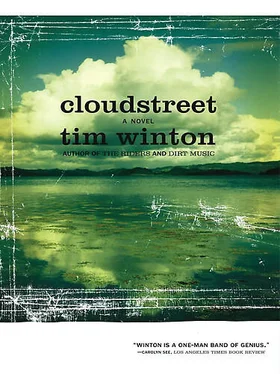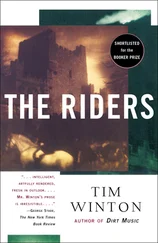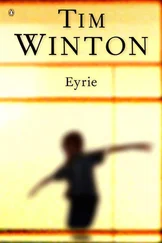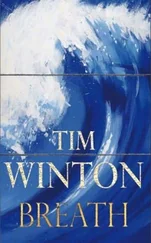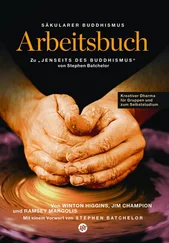After lovemaking Toby went quiet, as though he’d suddenly and terribly run out of talk. He wrote poems, she discovered, wrote them in his head while they lay there subdued. She didn’t understand them if ever he showed them to her on paper. They seemed ugly and nonsensical, and as he wrote more of them and had them roundly rejected by magazines in the East his moods darkened.
She began to tell him about her life, but there were times when it was no use talking to Toby. With his friends it was no use saying anything at all. Every time she opened her mouth he’d scowl. She’d always put something into a conversation that would stop things dead. Toby’s friends painted and sculpted or wrote, though some just came around looking harried and thoughtful and did nothing at all. They knew everybody’s name, and certain names brightened their faces. They blew cigarette smoke like they were spitting. They spoke with their heads back and their eyes closed and their accents were Englishy. Rose didn’t mind them. Early in the evenings, when she was feeding them all, they showed an interest in her and once a woman painter suggested she go to night school to improve herself. She listened like a kid at a keyhole.
Rose went to work bleary and sullen. The switch girls teased her. She’s a bloody inta-llec-shul now! they shrieked, but they let up on her and bought her salmon and onion sandwiches in Coles and fussed over her when she was tired.
In the autumn Toby went into a long period of quiet, and after careful enquiry, Rose found that he was writing a book. He had hundreds of poems, hundreds, and she began to type them. In May, she was still typing. The poems were long scenes in which athletic men whispered Greek words into the ears of virgins.
Is anyone going to buy and read this? Rose asked, late one Sunday, after another weekend of typing.
Toby snorted. Probably not. Look what we’re up against. Oh, libraries’ll buy it.
Good, said Rose.
Is it?
Isn’t it?
He looked doubtful.
In May, one Sunday evening, Rose stopped typing. I’m not a typist, she said. And you’re not a poet.
You want to marry me, don’t you?
Ambition, Toby, it makes us funny shapes. You said it yourself. Let’s go to the football next weekend. Stuff the poetry.
Toby laughed.
Forget it, she said, it was just an idea.
An idea !
Yes, the switchgirl gets an idea. Call me a taxi.
I’ll call you a lot of things.
I’m going home.
Ah, the mysterious home. I always wanted to see where all these gothic strains come from.
Rose left.
For a few days it’s quiet between Rose and Toby. It rains in passionate bursts, usually when Rose is going to or from a train station. The girls at the switch are crazy and loveable, but she feels a stranger to them after these past months. She stays in at night and the house is almost tranquil except for the crying in the walls at night. She eats dinner with the old man and Chub, and with the old girl if she is out of bed in time. The kitchen smells of the pepper on the steaks, and of burning jarrah in the firebox. The Lamb mob seems quiet, subdued even. Sometimes she can hear the slow boy singing.
He’s a clever bloke, this fella of yours? Sam asks one night between wireless shows.
Oh, he’s clever enough, says Rose.
Gets a fat pocket at the end of the week, I spose?
Well, he gets more than me, Dad. He writes gossip during work hours and drivel in his free time.
Sounds like the life to me.
Oh, Dad, you silly bugger! she laughs.
Rose leaves the room before she clouts him one.
At the window by the landing Rose looks out on the backyard, lit softly by the lamp in the tent and the dunny light on this side that Chub’s probably left on, Chub who’s never had a job, Chub who eats and sleeps. It’s wet and lush out there, wild on the Pickles side of the tin fence, bountiful on the Lamb side. Rose unplaits her hair, and watches the shadow of the little woman in the tent. She’s been out there years now, and everybody in the street knows about it. No one knows why she’s there. She works all day in the shop and goes out there at night. It looks warm, the colour of that tent, and close and private. Yeah, she can see why a woman’d move out there to have some life of her own. It occurs to her that she hasn’t spoken to Mrs Lamb for a year, maybe two.
There’s a creak on the boards behind her. She whirls around to see Red Lamb.
It’s pretty hair you got.
Rose looks at her. Red is a year older than her, but Rose has always thought of her as some years her junior. Her red hair is cut flat and short, and it occurs to Rose that if the girl waits long enough it’ll actually come into fashion, especially if she had a tendency to hang around at the Snakepit and be a widgie. But she can’t see it. Red has the look of a hopelessly sporty girl.
Thanks. Thank you.
Red steps up on the landing beside her and peers out through the rainspatter on the window.
Your mum’s still up and about.
She’s a saint, you know. There’s no one else like her alive.
They stand a few moments like that, like two strangers waiting for a bus. Rose smells hard Velvet soap on Red.
Well, good night, says Red.
Yeah, g’night.
Rose watches the shadow in the tent. Rain falls without a sound.
In the night, Rose woke with cramps and had to stuff the pillow under her belly and lie like a baby on her front with her legs drawn up under. It was a horrible pain, the beginnings of a bad period, but she was grateful for it. Any period was a good period. Men had taught her that much. But it was severe alright. She’d get the old man to call her in sick in the morning. It’ll shock him, she thought, he doesn’t believe in missing work. Except to lie low. Well, maybe it’s the same. I’ll be lying low.
Some girl was blubbering in the house again. There was no one here anymore as young as that voice. Sorry sport, she thought; I’ve got my own problems.
At noon, the old girl came up in her dressing gown with a letter.
It’s from Ted, she murmured. He’s in South Australia. He married that girl who was pregnant. He’s a jockey. Can you believe it — he doesn’t weigh nine stone. You orright?
Rose nodded. Geez. I’m an auntie.
And I’m a grandmother. Never even knew about the weddin. I love a weddin.
Right there on the bed, the old girl got a weep on, and Rose found herself with an arm around her, patting the back of her head, smoothing the crumpled, smokestained bangs.
I’m old, Dolly bawled. I’m old.
She stayed there until she seemed exhausted by it all, and Rose laid her down on the bed.
What’s wrong with you, anyway, love? Why you off work? Dolly murmured beside her on the pillow.
Oh, the painters are in, that’s all.
God was laughin when he made women.
Rose lay there and listened to her mother fall asleep. She smelt of Guinness and lemonade. Rose put her hand on the old girl’s big arm and then she took it away again.
When Rose woke, it was evening and she was alone. Someone came hammering on her door. The old man.
Rose. Rose! There’s a bloke here!
Oh my God.
Says his name’s Tony.
Oh, please, she thought.
And then in came Toby himself, wildeyed and lurching.
What the hell are you doing here?
A poem! Someone’s taken one of my poems.
Don’t spose you’re insured? said Sam in the corridor.
Rose Pickles pulled the blanket over her head and laughed.
I’ll bung the kettle on, said Sam.
We’re invited to the editor’s house, said Toby.
Now? said Sam.
Tonight.
Then I will put the kettle on.
Put the bloody kettle on, Dad.
Sam gave an awful wink and went on his way.
Читать дальше
